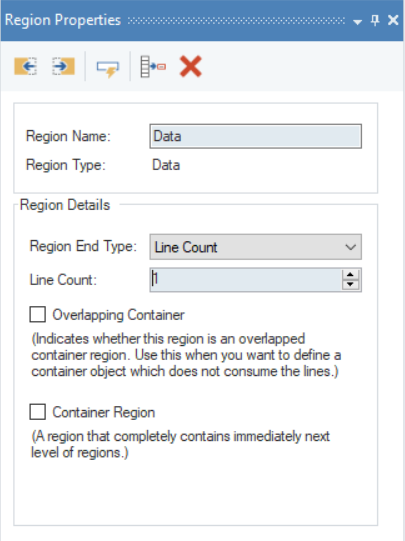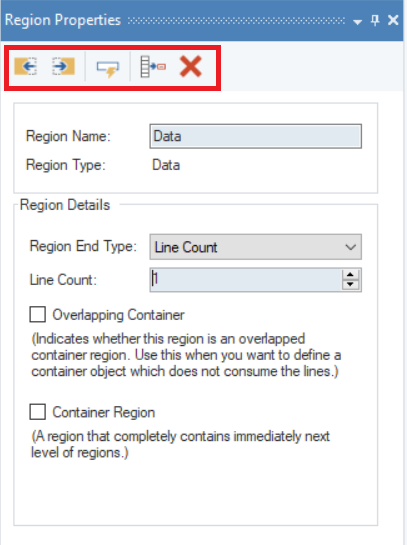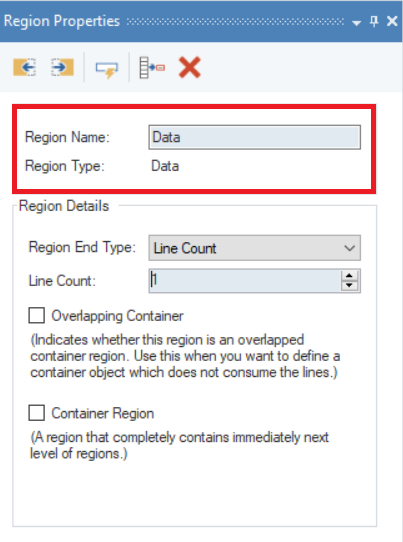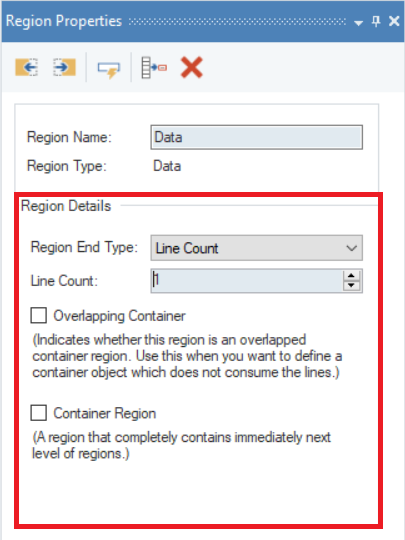Region Properties Panel¶
In this article, we will explore and discuss the various properties of data regions in Astera ReportMiner. But first, let us explore what a data region is.
What is a Data Region?¶
A Data Region is an area of data captured within your report. It can cover any number of lines in a source report. This area has specified a pattern.
Setting up a data region is one of the first steps to mining data from a report. Data regions are the backbones of Report Models – they direct ReportMiner to extract data from the file.
To support the selection of data regions, Astera ReportMiner contains a set of region properties.

Move all field markers left one character – this option moves all the field markers towards left by one character.
Move all field markers right one character – this option moves all the field markers towards the right by one character.
Auto Create Fields – this option automatically creates the data fields.
Auto Determine Field Names – this option automatically determines the field names.

Region Name – allows you to change the name of the data region.
Region Type – tells the type of your region

Region Details
The Region Details section lets you further customize your data region.

Region End Type – With the options available in the Region End Type drop-down list, you can specify where you want to end your data region. The options available are as follow:
- Line Count – ends your region after a specified number of lines.
- Blank Line – ends your region every time there is a blank line occurs.
- Last Fields – ends your region at the last data field within your data region.
- Another Region Starts (100 Rows Max) – ends your first data region where the next data region begins. This is used for variable-length data regions.
Line Count – allows the user to vary the line count according to the requirement of the data region.
Overlapping Container – used when there are multiple data regions with overlapping lines.
Container Region – used when a data region contains a sub-region within its boundaries.